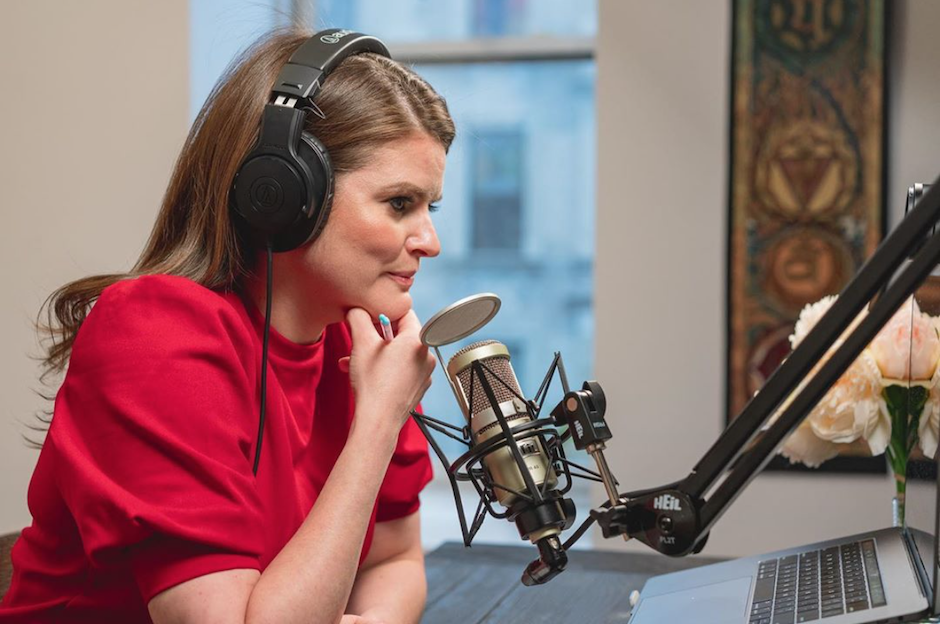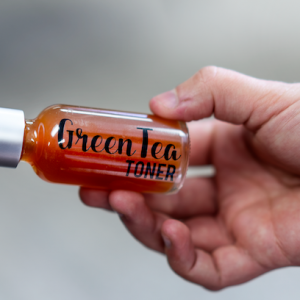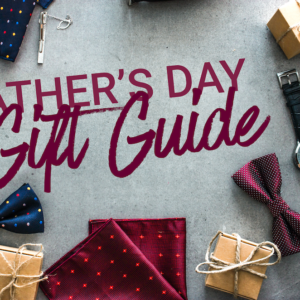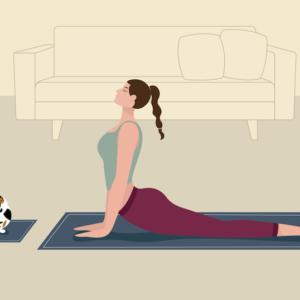I started my podcast, the Lindsey Elmore Show, last spring. Our first 50 episodes have been quite a learning experience. I knew I still had a lot to learn, and being part of other podcasts presents an opportunity to glimpse what works (and doesn’t work) for others. So my team and I set a goal for me to be a guest on 30 podcasts in 30 days. It was a whirlwind month, and here is what I learned about podcasting through the experience.
The Beginning
When I started the Lindsey Elmore Show, I wanted to reach women and inspire them by having conversations with game changers, thought leaders, doctors, creatives and more. I was excited to not only host amazing interviews on my show, but to also have the opportunity to connect with other podcast hosts to continue to spread the message of empowered and intentional health and wellness.
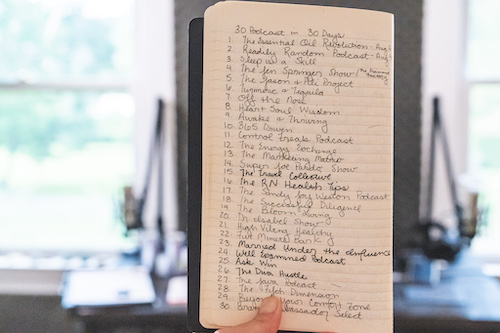
Throughout our first 50 episodes, we’ve talked about the healing power of music, how to have tough conversations with your children, making the most of every moment, how to build an authentic brand, why it’s important to keep your immune system healthy, and so much more. I set a goal to be a guest on 30 podcasts in 30 days in order to learn more and connect with different audiences. Connecting with these new audiences while talking passionately about women’s health, vegan cooking, business strategy and more was a challenge and opportunity I was excited for!
This experience taught me a lot about how other shows are run, what they’re doing right, and also how some podcasts can be improved upon. I gained a lot of inspiration for my own show, which was rewarding in itself!
What I Learned
1. Do NOT be late.
I can not stress this enough. Whether you’re hosting your own podcast and expecting a guest, or if you are a guest on another show, it is imperative that you make a good impression while also being respectful of others’ time.
2. Know your stuff.
Prior to a podcast, do your research. Figure out how you’re going to address or introduce the guest or host, and be prepared with questions. Valuing other people’s time by preparing for an interview shows mutual respect between guest and host.
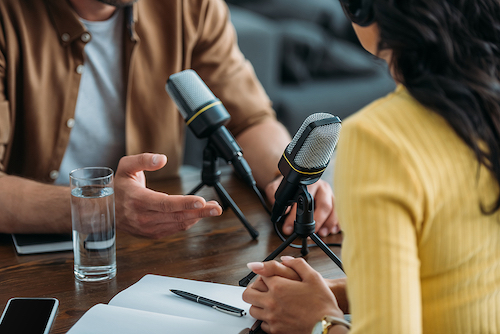
3. Set a time limit.
Know ahead of time how much the host is expecting of you as a guest, and be up front with a host regarding your hard stop times. Don’t be afraid if you’ve got the time to chit chat post interview, but make sure you’re always being respectful of both parties’ time.
4. Don’t make guests jump through hoops just to feature them.
As a podcast host, if you’re really looking for guests to be on your show, it should not be an impossible task to book those guests. Sometimes a pre-interview, extensive intake questionnaire, or a 30-minute call ahead of time can turn off guests from wanting to be on your show in the first place. Sure, it’s important to know the guest going in. But make sure what you’re asking before an interview is not an inconvenience to your guest.
5. Pay to play is not the way.
When crafting a show for your audience, booking authentic, intriguing guests is something every show should strive for. Having a policy that forces a guest to pay to be on your show doesn’t set the episode up for success. Instead, it creates a transactional relationship between guest and host, which is the opposite of the organic, natural, insightful conversations listeners of a podcast deserve.
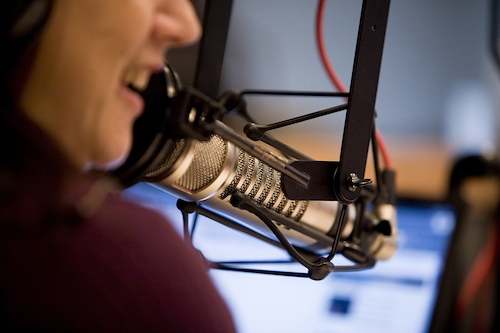
6. Do not ask guests to rate and review your podcast before they are on the show.
If a guest genuinely enjoys being on your show, they will likely go listen to it and provide a truthful review. Asking guests up front to rate and review the podcast makes that feedback seem inauthentic. It may be acceptable to request a review after the guest has been on your show, but be sure to ask in an appropriate way once you’ve formed a rapport with your guest.
7. Be careful when it comes to ads.
Ads are a great way for a podcast to generate income and notoriety. However, make sure you’re not agitating your listeners with ads that are too loud or placed in awkward parts of the podcast. You also don’t want too many ads; after all, your listeners are there to hear you speak – not to hear how you’re monetizing your show. Your ads should be relevant to your podcast, helpful to your audience, and should relatively fit in with your natural ebb and flow.
8. Ask for referrals.
After you’ve been on a show, or even after hosting a guest, always ask for referrals. This is a great way to book yourself as a guest on shows you may not be aware of, or to have great guests recommended to your show. If you prepare ahead of time, and really flex your stuff as a show guest, you’ll be an easy sell to get referrals for other podcasts.
9. Know your limit.
It’s great to challenge yourself, to set goals, and to have a vision of what you want your show to be. But, it’s imperative that you know where your time and energy limits exist. Being on a podcast means preparing ahead of time, which means being mentally and physically ready for a show. Trying to pack your day full of interviews with no time in between each show to debrief, may be ambitious but not realistic. Protect your time to prepare for each show while also allowing yourself to breathe between recording podcasts, whether it’s as a guest or a host.
10. Utilize all of the tools and platforms at your disposal.
When I set a goal to be on 30 podcasts in 30 days, our podcast team went to work finding different outlets to help me get bookings from different shows. Platforms such as PodMax, Podcast Clout, Podcast Guests, Matchmaker.fm, PodMatch, and Podcast Guest Collaboration on Facebook and more are just some of the ways to help get your name out there to help you be a part of other shows. Also don’t downplay the ability to connect with other hosts via Facebook, LinkedIn and Instagram. Use the relationships you’ve built on social media to ask for referrals and recommendations for shows you might want to hear (or see) yourself on.
11. Bring your A Game.
Being an effective, entertaining and well-prepared guest on a podcast is certain to set you up for success. Better guests receive better placements in future shows, and it’s important to give it your all during every segment. How do you do that? Listen to the show ahead of time. Know the format and layout of the show to avoid surprises when it comes to recording day. Look and feel your best; this means getting adequate sleep the night before and doing what it takes to look your best. Have questions and answers prepared, even as the guest. The ability to converse with your host authentically and organically will give you a leg up on other guests. Test your tech well before recording time. Nothing is worse than dealing with technical difficulties right before you’re supposed to go live with a show host.

12. Have your assets prepared.
This means having several things at the ready. Make sure to have a bio that paints you in the best light, one that truly gets to the root of who you are and what your message is. Provide a high resolution headshot or photo of yourself. Professional photos are best, but at least choose one that catches you in a flattering light, as these photos will be used to promote you on the show. (Trust me, having a quality photo stops podcast producers from having to hunt you down on Facebook to find a quality photo that might not be your favorite!)
13. Know how to pitch yourself.
If you’re unsure of what you do, who you are, and what you want to talk about – what makes you think a podcast host will want to have you on their show? Have a one-sheet podcast file that gives podcast hosts everything they need to know about you: topics you’re willing to cover, shows you’ve been on previously, your bio, your headshot and anything else relevant to why they should have you on their show. Creating a 60-second video with quality audio and video will also help give people an easy, clickable asset so that they know who you are as a speaker and as the talent as soon as they open their email.
14. Know and state your discussion boundaries.
Have go-to questions for what each podcast can or can’t ask you, and topics that you’d be excited to cover that is relevant to their audience. Make sure the topic of conversation that is selected fits in with what both you and the podcast host have envisioned for the show. This is vital also as the podcast host. “Seeing where the conversation goes” is an effective technique among friendly conversations. But in order to get into the nitty gritty and truly get to the root of quality conversation requires planning ahead of time and knowing what you want to ask your guest. This also goes a long way when protecting the time constraints of all parties involved.
15. Create a place on your website where people can book you for their show.
As much as I love podcast booking platforms, there is a lot of dead space. What I mean is that you do tons of pitches and not everyone gets back you in a timely manner and often not at all. That’s why we created a dedicated area of our website where podcasters can book me as a guest or apply to be a guest directly to us. Here’s the page.
Listen to The Lindsey Elmore Show now.
If you are starting a podcast, you may want to check out this post to learn about Tools for Creating the Perfect Podcast.
